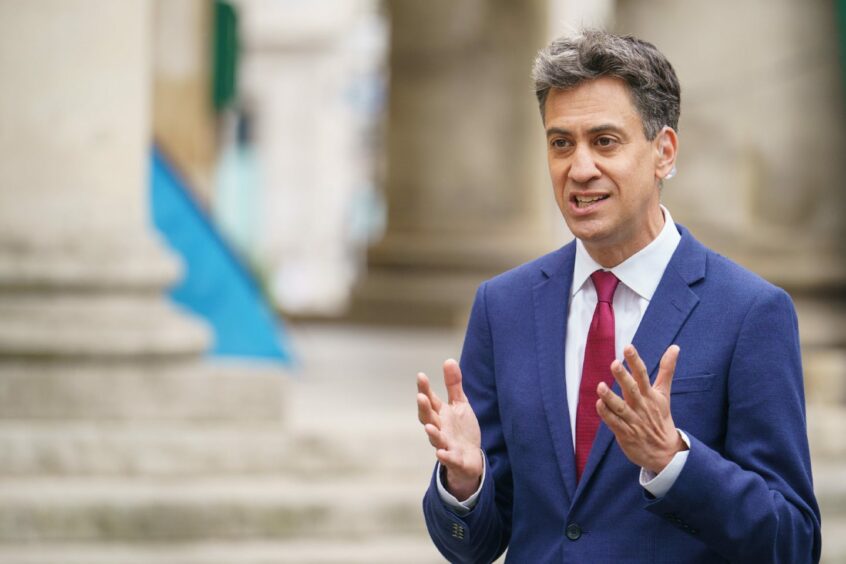
The government is guilty of “sluggish decision making”, Ed Miliband, shadow Secretary of State for Energy Security and Net Zero, said this morning, setting out some plans for a change of pace under a potential Labour administration.
A Keir Starmer-led government would have “clarity of mission”, Miliband said. Speaking at the International Energy Week (IEW), he highlighted the target of clean power by 2030 as his North Star.
The shadow secretary said numerous discussions with industry and communities had highlighted the current slow pace of the energy transition.
“The next Labour government has the shared national mission of Britain becoming clean energy superpower. This is one of Keir Starmer’s top five priorities,” Miliband said.
Amid Miliband’s talk of working with industry and unlocking private investment, he also talked about the jobs impact of Labour’s plans. “This will be a just transition. I’m an MP from a coal-mining constituency, I know the dangers of an unjust transition.”
The parts of the UK that rely on hydrocarbons will provide the workforce for the energy transition, he said.
“These workers are the people who can decarbonise our country, in hydrogen, in carbon capture, in offshore wind. But it’s not happening. There is no plan for the transition in the current government.”
IRA influenced
The shadow minister cited the US’ Inflation Reduction Act (IRA) as an influence. “The real lesson of IRA is that something like 85% of investments are going into areas that have below average incomes in the US. We need to learn from that.”
A Labour administration would provide public investments to “crowd in” private investments of “tens, or hundreds, of billions of pounds”.
A national wealth fund would invest in upgrading ports to be able to increase capacity in offshore wind facilities, in industrial clusters, in battery manufacturing, in steel and in manufacturing.
This will provide a “clear transparent incentive” to support manufacturing facilities in Britain’s industrial heartlands, Miliband said. “This is the economic opportunity of the 21st century. The planned GB Energy will invest in leading edge technologies, such as floating wind and small modular reactors (SMRs).
“We want to work with you to ensure that every job in industry is a good one.”
North Sea plans
A Labour government would not issue new licences, Miliband said, but would allow ongoing projects to continue.
“We will use all the assets at our disposal. Many here are from oil and gas and it is vital we have a managed transition in your sector. For energy security, for workers and so we can use the extraordinary infrastructure of the North Sea for our future.
“That’s why we will use the existing oil and gas fields for their lifetime and deliver a plan for the North Sea for CCS and hydrogen. We will develop such a plan working with you.”
Miliband said he had a “good dialogue” with OEUK and the industry. “That dialogue is important in opposition and even more if we get into government.”
Labour, the shadow secretary said, offers “a whole government effort” in the pursuit of the clean energy transition.
The politician highlighted the onshore wind ban as evidence of the current government’s “capricious decision making. Government can overturn it but there’s a culture of inertia and stasis.”
Changing the policy on onshore wind and allowing projects to move forwards is a step that Miliband said he would carry out on his first day in government.
Recommended for you

